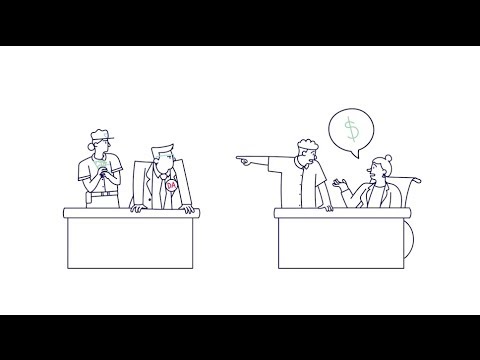District attorneys and civil asset forfeiture


Please note that by playing this clip YouTube and Google will place a long term cookie on your computer.
This piece was originally published on the What a Difference a DA Makes campaign website. View it here.
When the ACLU of Massachusetts conducted a poll last July, voters were most surprised to learn that district attorneys control funds gained through civil asset forfeiture.
Sixty percent of voters were surprised to learn that there are situations where district attorneys can take people’s property – including money – even if the person hasn’t been convicted of a crime. Civil asset forfeiture is a way for prosecutors to seize property and money that law enforcement officers believe is connected to criminal activity.
One problem with civil asset forfeiture is the way it is used – and who it’s used against. There is a perception that individuals involved in drug trafficking are the only ones who have their assets seized and forfeited. There are an overwhelming number of low-level encounters, however, that result in the seizure of funds. The mere allegations contained in a police report are enough for the district attorney's office to move for forfeiture. These are the cases that are not talked about.
The way civil asset forfeiture funds are used are problematic as well. DAs’ offices consistently claim that they are underfunded and use civil asset forfeiture funds to make up for budget shortfalls. Nevertheless, DAs are encouraged to spend at least 10 percent of the civil asset forfeiture funds they take on community-based crime prevention programming. The amount that gets spent varies from county to county, but it rarely surpasses the 10 percent threshold. In one county, they spent more than 10 percent on community-based crime prevention, but it was spent on youth activities in a community that had significant resources as opposed to one that was under-resourced.
But our campaign is not the only concerned voice on the issue. In a recent report by the nonpartisan Institute for Justice, Massachusetts earned an “F” for its asset forfeiture laws – a shameful distinction shared with only one other outlier state, North Dakota.
Here’s why we earned that grade: In Massachusetts, our standard for taking that money is the lowest of all 50 states – and as much as 100 percent of forfeiture proceeds go to law enforcement, creating a dangerous motive to seize property.
Current Massachusetts law also lacks transparency around what law enforcement officials – including district attorneys – do with forfeited property and funds. Aside from the Massachusetts District Attorneys Association’s (MDAA) budgetary filing requirement, Massachusetts residents are largely left in the dark about the use of these properties and funds. Seized assets – from cash to cars to real property – can be a major source of unrestricted and unaccounted for DAs’ offices across the Commonwealth. According to filings by the MDAA, the total deposits made into the Law Enforcement Trust Fund over the last three fiscal years totaled to more than $13 million. That’s $13 million obtained outside of the legislature’s appropriation and budgetary process, and not subject to oversight or meaningful public reporting requirements.
Massachusetts law also places the burden on the owner of the property to prove their innocence or ignorance of any criminal activity associated with their seized property in order to recover it. As a result, they must go through costly and time-consuming forfeiture litigation – even when they are not involved in any criminal proceeding, and even if the police lacked probable cause to seize the property in the first place.
We don’t blame voters for being surprised by the power DAs have to seize property: it’s an alarming threat to due process, made even more startling by the lack of transparency and accountability.
The truth is, government works best when people know what it’s doing – and that’s why we’ve set out as a campaign and network to inform voters about district attorneys and their role in our lives and communities.
Learn more about the power of district attorneys and get involved with the campaign by visiting DAdifference.org. You can also follow the campaign on Twitter: @DAdifference_MA.
Related content
APHA v. NIH
April 24, 2025
Federal Court Grants Preliminary Injunction Against Department of...
April 24, 2025Researchers Challenge NIH’s Politically Driven Grant Cancellations
April 2, 2025ACLU and NEA Sue U.S. Department of Education Over Unlawful Attack...
March 5, 2025
ACLU of Massachusetts statement on US Department of Justice report...
December 9, 2024
ACLU of Massachusetts statement on recommendations to reinforce...
October 16, 2024
ACLU of Massachusetts calls for urgent federal investigation into...
September 20, 2024
Legislative committee advances bill to modernize Open Meeting Law,...
June 24, 2024